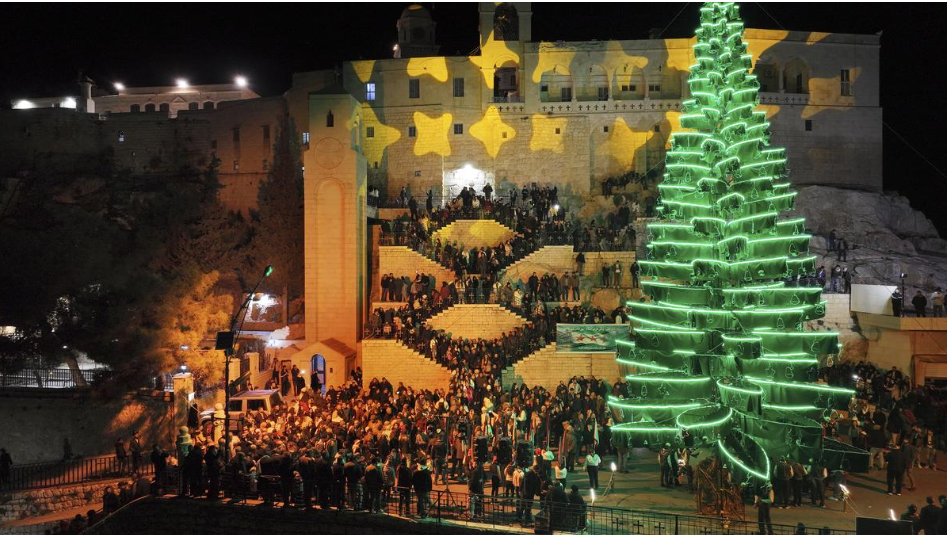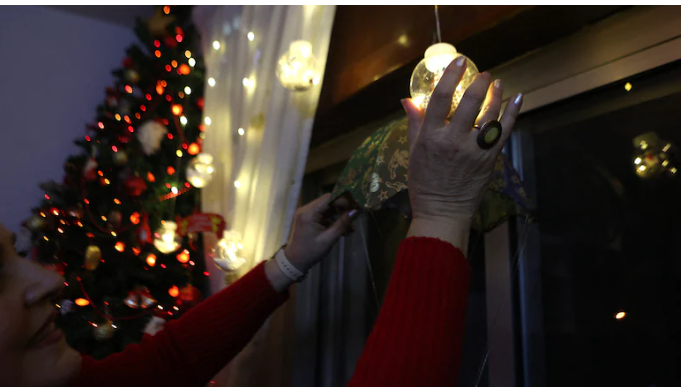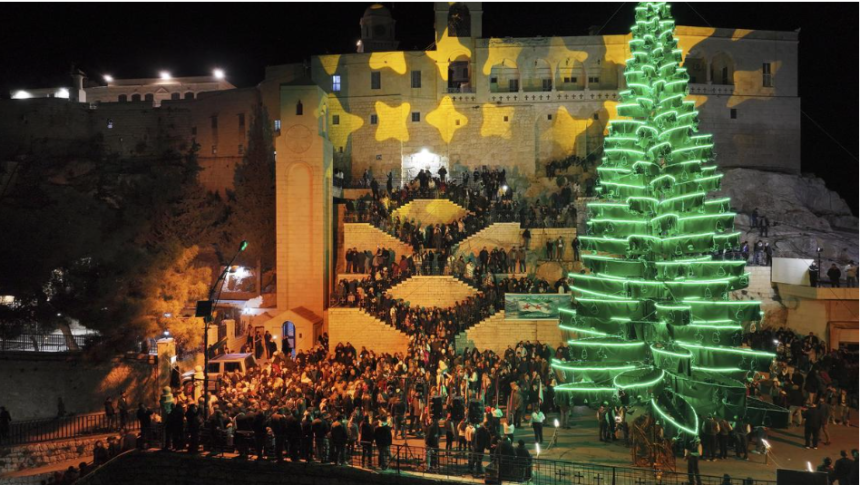Introduction
This Christmas season marks a new chapter in Syria’s history, as the fall of President Bashar al-Assad on December 8 ushers in a post-Assad era. While the nation is grappling with significant political and societal changes, the promise of a new beginning is overshadowed by deep fears among Syria’s religious and ethnic minorities about their future in a nation marked by war, division, and competing visions for governance.
Syria’s new rulers have sought to reassure Christians and other minority groups about their rights and protection, but skepticism remains. Christmas, a time traditionally marked by joy and celebration, is subdued this year, reflecting both hope and lingering anxiety.
Syria’s Complex Religious and Ethnic Landscape
Syria is home to a diverse array of ethnic and religious communities, including Arabs, Kurds, Assyrians, Druze, Alawites, and Christians. Before the civil war, these groups coexisted within a society dominated politically by Assad’s Alawite minority, though many tensions simmered beneath the surface.  For the more information click on this link
For the more information click on this link
- Christian Communities in Syria:
- Syrian Christians, who make up roughly 10% of the population, are among the oldest Christian communities in the world, with roots dating back to the early days of the faith.
- Many Christians traditionally supported Assad’s secular government, which offered protections for religious minorities amidst a broader Sunni Muslim majority.
- Impact of the Civil War:
- The prolonged war devastated Christian communities, with many fleeing the country to escape persecution, violence, and destruction. Churches, once vibrant centers of worship, were reduced to rubble.
- Post-Assad Uncertainties:
- With Assad’s fall, fears have surged that power shifts could destabilize minority protections, particularly in the face of hardline Islamist factions vying for influence in a fractured Syria.
A Subdued Christmas Celebration
In post-Assad Syria, Christmas is both a time for cautious optimism and quiet reflection. For Christians who chose to stay, this year’s celebration is markedly different from years past.
- Worship and Tradition:
- Churches that survived the war held midnight masses and Christmas services, though attendance was lower than before the conflict.
- Many families held small, private gatherings instead of larger public festivities.
- Voices of Resilience:
- “We light our candles this year for peace, not just for us but for all Syrians,” said Father George Ibrahim, a priest in Aleppo. “We hope to rebuild a nation where all can live without fear.”
- Fewer Decorations:
- Public squares that once boasted elaborate Christmas lights and nativity scenes are far more subdued, reflecting the lingering scars of conflict and displacement.
Promises from Syria’s New Rulers
Since taking power, Syria’s transitional government has made a concerted effort to assure minorities, including Christians, that their rights will be safeguarded.
Key Promises Made:
- Freedom of Worship:
- Leaders have emphasized that Syria will remain a pluralistic society where all religious groups can worship freely.
- Equal Citizenship:
- There have been pledges to protect minority representation in the new government, with assurances that the country’s diverse identity will be preserved.
- Rebuilding Minority Communities:
- The government has promised to rebuild destroyed churches, schools, and cultural centers, aiming to support the return of displaced minority populations.
Lingering Fears and Concerns
Despite reassurances, many minorities remain apprehensive about their place in the new Syria. Years of war and social fragmentation have left wounds that are difficult to heal.
- Fear of Extremism:
- Hardline Islamist factions, which gained strength during the conflict, pose a threat to the safety and autonomy of religious minorities. Even with Assad’s removal, some groups advocate for policies that could undermine minority protections.
- Uncertain Legal Framework:
- Many Christians worry about what a new Syrian constitution will entail. Will it enshrine secularism, or will it lean toward sectarianism?
- Distrust in Leadership:
- After years of oppressive rule under Assad and the chaos of the civil war, minority groups remain skeptical of the new regime’s ability—or willingness—to uphold their promises.
Economic Hardship Amid Celebration
The broader economic struggles facing post-war Syria also weigh heavily on Christmas celebrations.
- Rebuilding Lives:
- Many Syrian families, including Christians, are struggling to rebuild homes and livelihoods lost during the war. Resources for festivities are scarce, with priorities focused on survival.
- Inflation and Scarcity:
- The cost of basic goods has soared, leaving many families unable to afford traditional Christmas meals or gifts for their children.
- International Aid:
- Aid organizations, including Christian relief agencies, have stepped in to provide food, toys, and supplies for struggling communities during the holidays.
Voices of Hope and Unity
Amid fears, there are also stories of hope and solidarity across Syria’s religious divide. Communities, both Christian and Muslim, are coming together in small but meaningful ways.
- Interfaith Efforts:
- In Homs, a Muslim-led charity joined Christian groups to distribute warm clothing to displaced families in time for Christmas.
- Shared Mourning and Healing:
- “We all suffered, no matter our faith,” said Mariam Youssef, a schoolteacher in Damascus. “This Christmas, we want to believe that Syria can start healing together.”
Global Christian Response
The plight of Syria’s Christians has drawn attention from the global Christian community, which has rallied to show support.
- Calls for Protection:
- The Vatican and other Christian organizations have urged the new Syrian government to protect religious minorities and ensure their full participation in rebuilding the nation.
- Financial and Spiritual Aid:
- International aid groups have launched campaigns to provide resources for Syrian Christians, helping them rebuild churches, schools, and homes.
- Advocacy for Peace:
- Many global Christian leaders have used this Christmas as an opportunity to call for reconciliation and inclusive governance in Syria.
What the Future Holds for Syria’s Minorities
As Syria transitions away from Assad’s authoritarian regime, its ability to create an inclusive society will determine the fate of its religious and ethnic minorities.  For the more information click on this link
For the more information click on this link
Challenges Ahead:
- Building Trust:
- Reestablishing trust between communities and the new leadership is a monumental task, requiring transparent governance and concrete action.
- Balancing Power:
- Syria’s new rulers must navigate tensions between moderate and hardline factions to maintain stability while protecting minority rights.
- Rebuilding Communities:
- Large-scale efforts to restore minority communities and ensure their equitable participation in society will be essential to fostering lasting peace.
Conclusion
This Christmas in Syria marks both an end and a beginning. The fall of Assad has brought the promise of a new era, but it is shadowed by lingering fears for the future of the country’s minorities, including its Christian population. As Syrians gather around modest Christmas trees or attend quiet church services, their prayers reflect a collective longing for peace, security, and a nation where diversity is not a source of division but of strength.
The resilience of Syria’s people, coupled with efforts by the new government and global advocates, offers hope that future Christmas celebrations will be brighter, free from the taint of fear and uncertainty. For now, however, the journey toward that vision remains a challenging road ahead. ALSO READ:-Report: Israeli Military Actions Influenced Hamas’ Killing of Six Hostages 2024





